 Geoff Dembicki on How He Wrote a Big Oil BlockbusterGeoff Dembicki’s The Petroleum Papers, set for release Sept. 20, is getting raves while inspiring rage. Kirkus Media has listed it among its top anticipated books for the fall season and the Toronto Star placed the work on its own similar list.
That sounds like a ton of work. Give me a sense of how you went about it, and maybe something you dug up that amazed you.
|
It’s possible that I shall make an ass of myself. But in that case one can always get out of it with a little dialectic. I have, of course, so worded my proposition as to be right either way (K.Marx, Letter to F.Engels on the Indian Mutiny)
Saturday, September 17, 2022
Touting myths to millions is ‘highly irresponsible,’ say experts trying to avert disaster.
Geoff Dembicki
Geoff Dembicki reports for The Tyee. His work also appears in Vice, Rolling Stone and the New York Times.
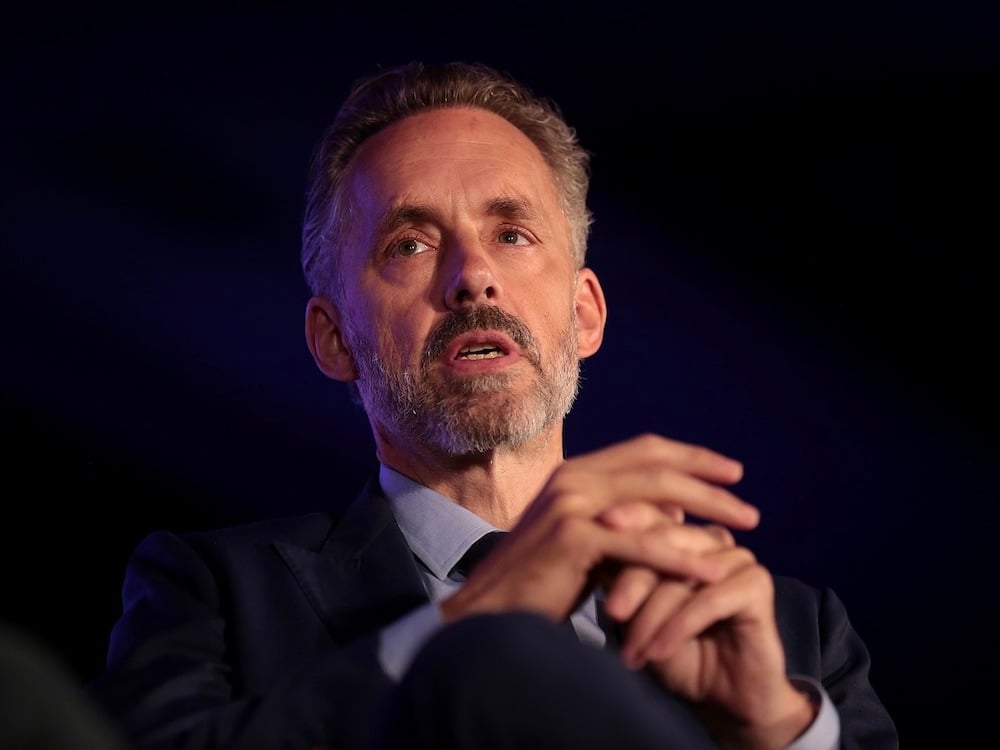
In mid-August, Jordan Peterson uploaded a video for his more than 5.4 million YouTube subscribers in which he referred to the growing body of science linking extreme weather events to climate change as “dubious.”
Dressed in suit and tie and seated in an austere white room with the feel of a tech startup office, the Canadian celebrity conservative influencer claimed to take aim at the “globalist utopians” forcing us “to fall in line” in order to stabilize global emissions by 2050. That goal is widely regarded by scientists as crucial for avoiding the worst damages of climate change. But Peterson referred to it as “absolutely preposterous.”
The bulk of the video, which has more than 1.2 million views, consisted of Peterson reading verbatim an article he’d recently written for the Telegraph, a major British newspaper, headlined “Peddlers of environmental doom have shown their true totalitarian colours.”
The idea that “storms, wildfires, droughts, downpours and floods around the globe in the last 18 months are unique and unprecedented” is “a dubious claim,” Peterson said. And to the “power-mad utopians” pushing the supposedly false narrative of a climate emergency Peterson had this to say: “We will not allow you to steal and destroy the energy that makes our lives bearable.”
No one is out to make people’s lives unbearable by “stealing” energy from them, of course. The work being done by scientists, technologists and policy-makers to transition the global economy to conserve emissions-producing energy and shift to renewables in order to head off a climate catastrophe does invite a willingness to imaging how life can remain bearable by changing our ways.
The Tyee is supported by readers like you Join us and grow independent media in Canada
But bald denials of the climate crisis are increasingly rare in many mainstream media outlets. And as Peterson ramps up his naysaying, climate skeptics are delighted with the former University of Toronto psychology professor born in Alberta. A far-right U.K. website called the Conservative Woman deemed the publication of his recent essay “a first for the usually ‘conspiracy’-shy Telegraph,” and explained that Peterson was “expressing views which, to date, have been shared only on alternative social media outlets.”
Peterson in turn used his Telegraph story and the accompanying YouTube video to name and praise climate skeptics such as Matt Ridley, a journalist and conservative politician who earlier this year argued that climate change is “mostly beneficial” and that “this startling fact is kept from the public by a determined effort on the part of alarmists and their media allies who are determined to use the language of crisis and emergency.”
Trackers of climate disinformation said this potentially represents a worrying new phase in the climate crisis denial movement: skeptics who are increasingly struggling to be taken seriously by legacy media are now being exposed to millions of people via social media through their association with a celebrity conservative influencer from Canada.
“Through Peterson, who has a prominent voice, these other fringe voices are being lifted up,” Kert Davies, executive director of a U.S. research and watchdog group called the Climate Investigations Center, told The Tyee.
‘Truly irresponsible’
Actual climate scientists say it’s dangerous for Peterson, who didn’t respond to a list of questions from The Tyee, to be misleading the public at a time when we have less than a decade to halve global emissions or else risk crossing irreversible global tipping points such as the collapse of the Amazon rainforest.
“It is truly irresponsible,” Michael Mann, director of the Penn Center for Science, Sustainability and the Media at the University of Pennsylvania, told The Tyee. “And it betrays the fact that Peterson is nothing more than a right-wing disinformation artist.”
Earlier this year Peterson went on The Joe Rogan Experience, a podcast which has nearly 13 million followers on YouTube, and made rambling remarks about how the models used by climate scientists are flawed and incomplete.
“But your models aren’t based on everything,” Peterson told Joe Rogan. “Your models are based on a set number of variables. So that means you’ve reduced the variables — which are everything — to that set. But how did you decide which set of variables to include in the equation if it’s about everything?”
Climate scientists slammed the segment, with Mann saying at the time that “such seemingly-comic nihilism would be funny if it weren’t so dangerous.”
Yet climate crisis deniers were pleased that Peterson was taking their message to a mainstream audience. “Dr. Jordan Peterson has upset climate change alarmists by claiming on The Joe Rogan Experience that long-range climate models aren’t accurate,” recounted a U.S. website called Liberty Nation News, which has referred to the climate crisis as “hysteria.”
That article’s author Caroline Adana acknowledged Peterson was being “somewhat vague” in his criticisms of climate models, but that was likely because he “needed to adapt his language to the level of the average listener. If we compensate for these adaptations, he made valid criticisms that highly schooled and decorated climate skeptics have also raised.”
Indeed, as criticism mounted over Peterson’s comments, the former University of Toronto professor cited on Twitter one source for his views on climate change: a book titled Hot Talk, Cold Science: Global Warming’s Unfinished Debate by Fred Singer.
“Fred Singer was the grandfather of climate denial,” Davies told The Tyee.
The now deceased Singer was active for decades in campaigns to sow doubt and uncertainty about the science of climate change, including founding a disinformation hub in 1990 called the Science and Environmental Policy Project, which received funding from oil companies such as Shell and Exxon according to the climate disinformation watchdog group DeSmog.
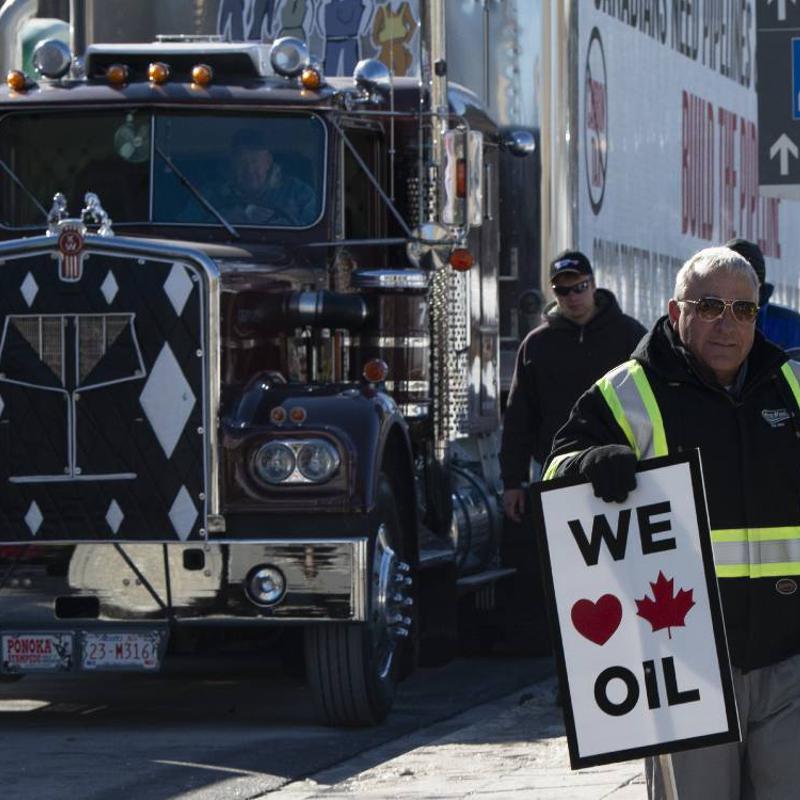
A Conservative Grassroots Thick with Climate Crisis Deniers
Singer was among six “specialists” who spoke at a 2002 news conference in Ottawa, sponsored by Imperial Oil, whose stated goal was to debunk “climate change myths.”
These days it would be difficult to find a direct reference to Singer’s work, which has been thoroughly debunked by climate experts, in a mainstream media outlet. But after the Joe Rogan appearance, alarmed observers argued that Peterson was essentially repackaging Singer’s views for a massive digital audience.
Mega-influencer in an echo chamber
“This latest episode reveals a growing trend, whereby ‘non-climate influencers’ are becoming central nodes of mis- and disinformation for a mainstream public and exposing them to views which either deny the reality and impacts of climate change, or explicitly undermine trust in the science and institutions working to marshal a response,” Jennie King, head of civic action and education at the Institute for Strategic Dialogue think tank, told DeSmog.
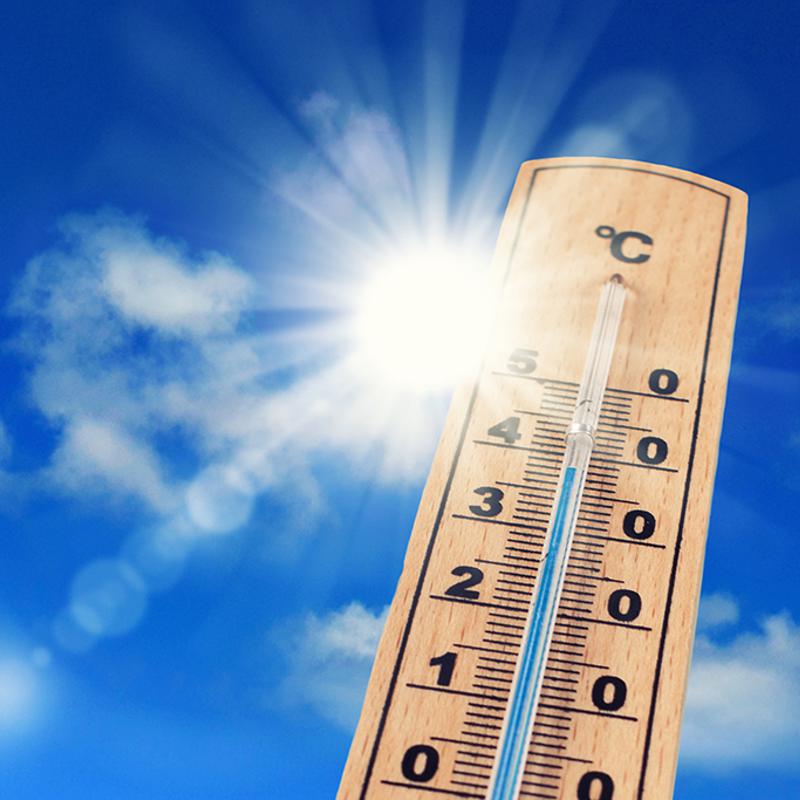
Fact Checking Patrick Moore, Climate SkepticREAD MORE
This is the dynamic that such observers saw in Peterson’s recent Telegraph essay, which argued that “there are clearly more important priorities than costly and ineffective emergency climate change reductions.”
To bolster that point Peterson referred to the work of Bjorn Lomborg, a political scientist and economist who acknowledges that climate change is real but says it won’t be as bad as many scientists predict, arguing in 2021 that “rapid hyperbole scares us witless.”
Peterson also cited Marian Tupy, editor of the conservative website HumanProgress, which is a project of the Cato Institute, a think tank founded by Charles Koch. Last year Tupy said that climate change “is not an existential crisis.”
When a mega-influencer such as Peterson lends a platform to such fringe views, Mann argues, it has real world impacts on our ability to solve the climate crisis.
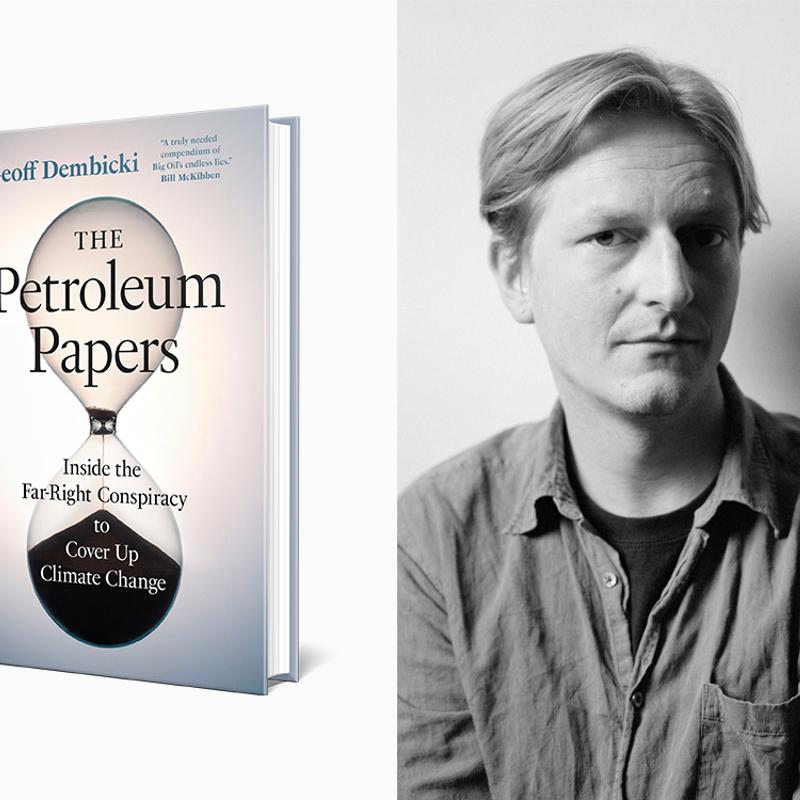
Come to Our Launch of Geoff Dembicki’s ‘The Petroleum Papers
“As a result of the denialist echo chamber, people tend to perceive that a far greater proportion of the public denies climate change than actually does,” he writes in his recent book The New Climate War. “That flawed perception, in turn, inhibits people from engaging their friends, neighbours and acquaintances on climate.... The less we talk about the issue, the less prominent it is in our larger public discourse, and the less pressure that is brought to bear on policy-makers to act.”
Peterson isn’t primarily known for his reactionary views on the climate crisis. But Mann argues it’s about time the public sees him for what he truly is — the latest in a long line of skeptics delaying society’s response to a crisis that is only getting worse and worse.
“He is promoting climate change denial at a time when it is increasingly untenable,” Mann said.

| |||||||||
|
Reached by The Tyee, the bully caught on video echoes messages fomented by right-wing politicians. Expect more threats, says an expert.
Charles Rusnell

The Grande Prairie man who verbally attacked and intimidated Deputy Prime Minister Chrystia Freeland on Friday told The Tyee he is proud of his behaviour and isn’t concerned by the public condemnation of those who say he is a deluded conspiracy theorist, a bully and a coward.
“Why did I do that? Because I want the rest of the country to wake up and realize that she is a traitor to the country. She is selling out the country,” Elliot McDavid said in a phone interview Saturday.
A political scientist told The Tyee he expects aggressive attacks on politicians to increase in Canada as right-wing politicians continue to engage in “rage farming” by advancing false and misleading conspiracy narratives.
“They know how to feed those narratives,” said University of Alberta political scientist Jared Wesley.
“It is little half-truths, sometimes more blatant lies, that kind of plant the seeds for this rage farming,” he said.
Freeland, according to her official itinerary, had been in Grande Prairie to meet with local farmers and skilled tradespeople. She was at city hall to meet with Mayor Jackie Clayton.
In a video posted by one of his associates on Friday, McDavid, a big-bearded man dressed in a white sleeveless T-shirt, is seen approaching Freeland as she was about to enter an elevator at Grande Prairie’s city hall.
McDavid calls Freeland’s name, she stops and acknowledges him and he shouts, “What the fuck are you doing in Alberta?”
Freeland and her entourage of women enter the elevator and McDavid continues shouting: “Get the fuck out of this province,” he says, later twice calling her a traitor and a fucking bitch and a c***. Freeland did not respond.
McDavid is then confronted by a man who tells him to leave the building and McDavid gets in the man’s face, telling him not to touch him. Out in the parking lot, McDavid and a woman gleefully celebrate the attack on Freeland.

In the interview with The Tyee, McDavid, one of the organizers of a truck convoy in Grande Prairie, ranted about the Trudeau government being part of a conspiracy involving the World Economic Forum. He also claimed the government was trying to starve the public by forcing fertilizer limitations on farmers and was killing thousands of people, including children, with vaccinations.
“I’m a proud Canadian and I have had enough,” McDavid said, mouthing a trope favoured by conspiracy theorists who view themselves as patriots while viewing the rest of the population as unquestioning sheep.
Asked what he would say to those people who are calling him a thug, and a bully and coward for attacking Freeland, McDavid said, “They got problems. Tell them to go get another vaccine.”
Asked what he would say to those people who say he is too stupid and gullible to realize he has bought into bizarre conspiracy theories, McDavid said:
“I’m fighting for the country and the people, unlike the media, unlike the government,” he said, adding that people won’t wake up until it is too late.
This latest attack on Freeland is part of ongoing verbal harassment and physical intimidation of politicians by protesters, many of whom harbour far-right anti-vaccination conspiracy theories and believe the government is taking away their freedoms.
During the federal election last September, a man threw gravel at Prime Minister Justin Trudeau during a campaign stop in London, Ontario. Trudeau has had to cancel public appearances due to security concerns.
In May, federal NDP Leader Jagmeet Singh was aggressively verbally harassed by protesters in Peterborough, Ontario.
After Friday’s attack, politicians of all stripes, including Alberta Premier Jason Kenney, condemned the harassment of Freeland.
“The verbal harassment and threats directed at Minister @cafreeland during her visit to Alberta yesterday is reprehensible,” Kenney tweeted. “If you disagree with a politician, by all means, exercise your right to protest. But screaming threatening language [and] intimidation cross the line.”
But political scientist Jared Wesley said it is politicians like Kenney, Conservative leadership candidate Pierre Poilievre and UCP leadership candidate Danielle Smith who are actively advancing narratives that serve to encourage this behaviour.
Even before former U.S. president Donald Trump brought his brand of populist politics to the world, he said politicians in Canada were stoking resentment of so-called elites.
“This time around, it’s not just anti-elitism, it’s what we call anti-pluralism,” Wesley said, explaining that United Conservative Party politicians in Alberta in particular advance the narrative that there are “pure people out there, pure Albertans.”
And so when people like Freeland come to their town, they are targets for abuse because they are not viewed as real Albertans or real Canadians, he said. Freeland is from Peace River, Alberta, north of Grande Prairie.
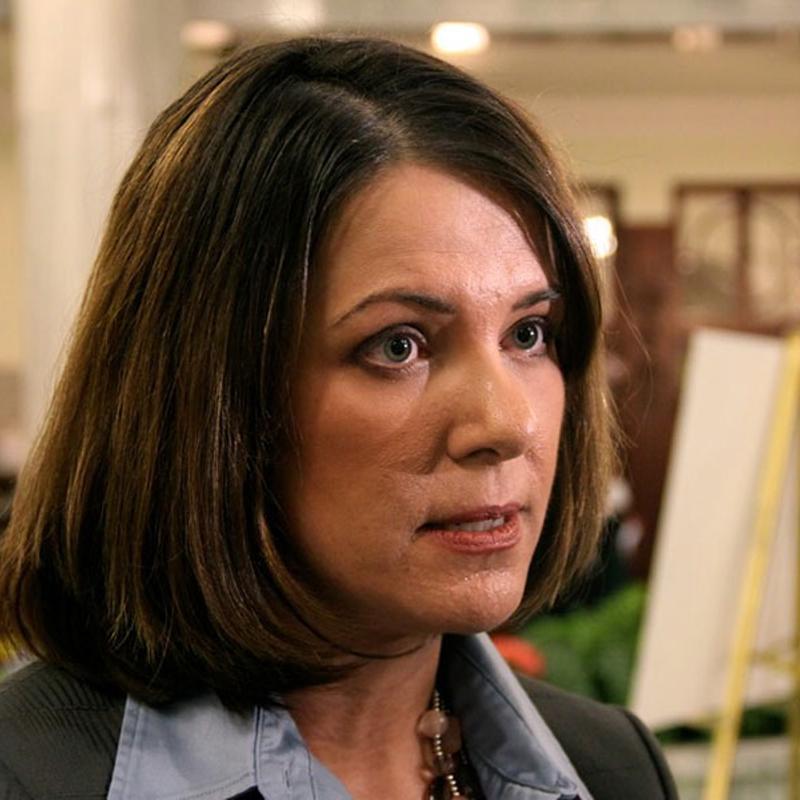
Danielle Smith Isn’t Nuts, Says Kenney. Just Her Policies
All three politicians have, for example, been pushing the narrative that Trudeau is somehow attempting to punish farmers by searching for ways to lower emissions from fertilizer.
Smith in particular, has made numerous statements about how vaccine mandates were an unnecessary intrusion on people’s freedoms and she has threatened to fire the board of Alberta Health Services and the College of Physicians and Surgeons of Alberta.
She has advanced the idea of an Alberta Sovereignty Act that she says would allow Alberta to opt out of federal laws, including those governing guns.
“What these narratives do for conspiracy theorists, is that it helps them make sense of, first of all, complex things that don’t otherwise make sense; it’s boiled down into something really simple,” Wesley said.
“And secondly, it gives [conspiracy theorists] an out of sorts, where it allows them to see other people as being either the source of their problems or as being less moral or less worthy.”

As part of his ongoing political research, Wesley has been conducting focus groups around rural Alberta and he said people just want to be heard, to have their views listened to.

This Is ‘Kenneyism’
Ironically, he said, this extreme behaviour by people like McDavid will make it less likely that politicians will come to hear them out in their communities because they don’t wish to be abused and they legitimately fear for their safety.
When an incident like the attack on Freeland happens, it takes a politician away from the message they were there to deliver.
“So this creates a spiral; a populist spiral where people say they are not listening to us.” Wesley said. “Well, of course, they are not listening to you. Look at what is happening when they try to listen. It is just a self-perpetuating cycle.”

The Dangerous Rewiring of Canadians’ Minds
Wesley said the escalating harassment of politicians is dangerous. He referenced the 2016 murder of Jo Cox, a British labour politician who was shot and stabbed repeatedly by a man who wanted to advance white supremacism and nationalism.
“It is dangerous,” he said. “People are saying, ‘Well [Freeland] should be travelling with security.’ But that is a short-term solution.
“I hate to be a pessimist, but I think it is only going to get worse before it gets better.”
On Saturday, Freeland tweeted she will keep coming back “because Alberta is home, and because I want to keep meeting with Albertans from across this great province and visiting my family and friends here.
“What happened yesterday is wrong. Nobody, anywhere, should have to put up with threats and intimidation,” Freeland said, adding that she met many warm and welcoming people in Alberta and “one unpleasant incident doesn’t change that.”


15 September, 2022
The unionists were arrested on their way to a peaceful a protest, calling on the United Nations to recognize the National Unity Government of Myanmar and its permanent representative at the UN, U Kyaw Moe Tun.
A group of security officers in plain clothes appeared, using sticks to beat the protestors and firing a few shots.
29 protestors were arrested, including a few student and youth activists. Daw Zuu Zuu Ra Khaing and Daw Yamin Kay Thwe Khaig from IWFM, U Nay Min Tun and U Than Aung from Building and Wood Workers Federation of Myanmar (BWFM), and the driver of the Confederation of Trade Unions of Myanmar (CTUM) U Than Zaw, were among the 29.
CTUM president Maung Maung has issued a press statement condemning the inhuman and cruel attack, expressing his respect for the revolutionary comrades who are devoted to the non-violent democratic struggle.
“We demand that the illegitimate junta releases all protestors immediately. The international community must take action quickly, or the protestors will be interrogated and tortured by the military. Please support the democratic struggle of Myanmar workers; a peaceful protest is not a crime,”
says IWFM president Khaing Zar.
This is not the first violent attack against IndustriALL members in Myanmar. The junta killed a member of Mining Workers' Federation of Myanmar (MWFM), Chan Myae Kyaw, in March 2021.
Five months ago, a military vehicle rammed into a taxi carrying unionists, CTUM staff Khaing Thinzar Aye and IWFM member Ei Phyu Phyu Myint are still detained.
"The Myanmar junta must stop oppressing the people and workers. We wholeheartedly support the demand of the protestors that the NUG must be recognized at the 77th session of the United Nations General Assembly,”
says IndustriALL general secretary Atle Høie.
The 77th session of the UNGA is convening on 13-26 September. Together with other global unions, IndustriALL is urging the credentials committee and the general assembly to recognize NUG as the legitimate government.
IndustriALL is continuing its campaign for comprehensive economic sanctions against the Myanmar junta and that companies divest from Myanmar.

13 September, 2022
Seven months ago, EIEUNR exposed union busting at Molex Malaysia, who are a supplier to tech giant Apple, as workers were preparing for a secret ballot on joining IndustriALL affiliate EIEUNR.
Management organized a town hall meeting with workers, threatening them not to vote for the union, or else they risk losing bonus and benefits.
The Industrial Relations Department initiated an investigation and put the secret ballot on hold. EIEUNR submitted a voice recording containing the threats of the company management, but has since declined the department’s request for interviews, as it may expose the unionists to further intimidation.
“We urge brothers and sisters all over the world to support this online petition. Without a win in the secret ballot the workers are denied their right to bargain collectively. The union busting is violating Malaysian law as well as international labour standards, but so far no stern action has been taken against the company,”
says EIEUNR general secretary David Arulappen.
“It is outrageous that Molex workers cannot enjoy the right to freely choose their own union. There is clear evidence of workers' rights being denied and Molex should address it immediately. At the same time, IndustriALL reminds Apple to check their own code of conduct about respect of workers’ rights in their supply chain and make sure EIEUNR is voluntary recognized without further delay at the Molex site in Penang,“
says IndustriALL electrical and electronics director Alexander Ivanou.
Molex is a multinational company focussing on electrical, electronics and fiber optic products. The company's code of conduct states that it adheres to the non-discrimination principle and lawful employment practices, including respect for workers' freedom of association. Apple is one of Molex’ major customers.

Kenya glass workers win after strike for living wages and safety gear
15 September, 2022
According to the collective agreement the company will pay the minimum wages of 15201 Kenyan Shillings (US$125) as announced by the government and provide work suits and safety boots. In May, the minimum wages were increased by twelve per cent, which the workers say is not enough to cater for living expenses. However, in addition to the twelve per cent, the employer agrees to further increases of five per cent per year in the next two years, and that the workers will receive housing allowances.
KGWU said one of the clauses in the collective agreement stresses that in the case of an injury caused by an accident at work, an employee will be entitled to compensation in accordance with the provisions of the Work Injury and Benefit Act (2007). Further, personal protective equipment that includes uniforms and overalls and safety boots will be provided free of charge to workers. The agreement also includes clauses to protect workers’ rights to maternity and paternity leave as well as retirement.
The agreement also establishes an occupational health and safety committee made up of the employer and union representative as per the labour laws. On HIV and AIDS, workers are protected against discrimination by the employer that is based on their HIV status. Further, awareness campaigns will be carried out on HIV and AIDS.
Maurice Okoth, general secretary of the KGWU says:
“Most of the workers at FEAC are casual workers, and the union is recruiting and organizing them. We are demanding that the casual workers be given permanent jobs so that they can enjoy job security and the other benefits that we negotiated in the collective bargaining agreement.”
“With the rising cost of living in Kenya, wages must also be increased to enable workers to look after their families. We commend KGWU for demanding better wages. Additionally, implementing occupational health and safety at work standards at FEAC is important for accident prevention and a safe working environment,”
says Paule France Ndessomin, IndustriALL regional secretary for Sub Saharan Africa.
FEAC is a Nairobi based Chinese owned company that manufactures aluminium and glass products for the construction industry.
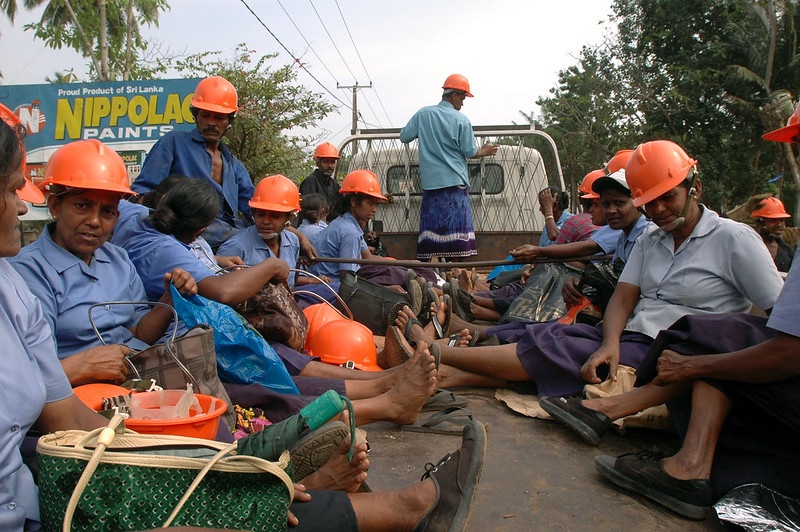
South Asia’s wage crisis
14 September, 2022
According to the ILO Global Wage Report 2020-2021, labour productivity in South Asia rose between 2010 and 2019, but actual minimum wage growth trailed behind. Sri Lanka and Bangladesh have seen the biggest declines in real minimum wages globally. The report also highlights that in 2019, minimum wage in Bangladesh did not even reach the lowest international poverty line. Wages in India and Sri Lanka were also close to the mark.
Union experience show that even in workplaces where workers can negotiate a long-term wage settlement, in reality employers delay for months and sometimes years before finalizing the agreement. By then the wage rise has already fallen behind the inflation it was supposed to neutralize.
IndustriALL affiliates have relentlessly worked to secure better pay for workers. In Pakistan, after a sustained campaign by IndustriALL affiliates and workers in the carpet industry, the Punjab government announced a wage increase of 2,500 PKR (US$14) in June 2021. But the workers’ struggle did not end there as, despite the government order, employers refused to comply. It took six months before employers agreed to increase wages.
In August 2022, Pakistani affiliates stopped work for over a month in Faisalabad to demand a 16 per cent rise in wages, given the soaring inflation in the country. Pakistan's inflation rate shot up to 27.26 per cent in August, as the country struggled with massive floods compounding already surging prices.
Niaz Khan, general secretary of ILUCIP, says:
“Workers’ wages are not sufficient to meet the rising prices of food and fuel. Employers and governments must acknowledge this and take strong steps to address the issue.”
In Sri Lanka, affiliates have demanded a wage increase of LKR10,000 (US$34) for workers whose monthly salary is below LKR60,000 (US$206), and that the minimum wage should be raised from LKR16,000 (US$55) to LKR26,000 (US$89) per month. The demands have yet to be met. Food inflation in the country reached 93.7 per cent in August. According to the latest World Bank assessment, Sri Lanka is ranked fifth among the ten countries with the highest food price inflation in the world. Affiliates are organizing community kitchen programmes to address the massive food inflation.
Bangladeshi affiliates have demanded an increase in the national minimum wage, which was last revised four years ago and currently stands at 8000 BDT (US$84).
In Nepal, people have taken to the streets to protest a surge in food and fuel prices.
Contract workers at Singareni Collieries Company Limited in India, who earn a fraction of what permanent workers do, called for an indefinite strike for over their demands, which include a wage increase and regularisation of work.
SQ Zama, general secretary of Indian National Mine Workers’ Federation, says:
“It's a very sad situation that while company profits are soaring, workers’ salaries are increasing at a sluggish rate. What makes matters worse is that even for a modest wage increase, workers have to put up a strong fight.”
Apoorva Kaiwar, south-Asia regional secretary of IndustriALL, says:
“Representing workers, we need to fight to ensure that workers get their rightful share in profits. We cannot accept that on one hand profits are soaring while on the other hand workers’ wages are not sufficient to maintain decent standards of living.”
Photo: copyright : Marcel Crozet / ILO
|
|
|
|
|
|
|
|
|
|
|
|
|
|
|
|
Friday, September 16, 2022
Saleen Martin, USA TODAY 9/8/2022

A discovery that would've been quite huge, literally, got people talking this week about an extinct shark that lived millions of years ago, the megalodon.
Researchers from the Atlantic Shark Institute, a Rhode Island based nonprofit that works in shark research and conservation, picked up a shape on its sonar fish finder that looked like the megalodon, also known as the meg.
Jon Dodd from the Atlantic Shark Institute took the photo three weeks ago just south of Block Island, Rhode Island.
The shape appeared for several minutes, but soon transitioned into something else.
The culprit?
A school of Atlantic mackerel. The fish "hung around the boat for about 15 minutes," the researchers wrote in a Facebook post Sunday.
"So close, but so far," the post read. "The Megalodon (Otodus megalodon), disappeared more than 3 million years ago and will likely stay that way, but, for a few minutes, we thought he had returned!"
The researchers also wrote that the figure eventually looked like "90% of all the schools we see offshore."
"Just happened to take the shape of a shark for about 2 minutes," they wrote.
What drove the megalodon to extinction? The great white shark may have
Sharks: 'The find of a lifetime': 8-year-old boy discovers giant shark tooth in South Carolina
The post amassed just over 40 comments, including some jokes and more scientific approaches.
One Facebook user wondered if the shape was some sort of adaptation the mackerel made to discourage hunters like whales and dolphins, asking if it could be sonar mimicry.
The megalodon was one of the largest predators that ever lived up until its extinction 3.6 million years ago, according to the Natural History Museum in the United Kingdom. Researchers believe it grew to between 50 and 60 feet long. Because of its large teeth, experts think it feasted on whales and large fish, and probably other sharks.
Nonetheless, the researchers don't think the shark is coming back anytime soon.
"While it would be equal parts fascinating, and terrifying, I don’t think we are going to see the return of the meg," the institute replied to one social media user.







